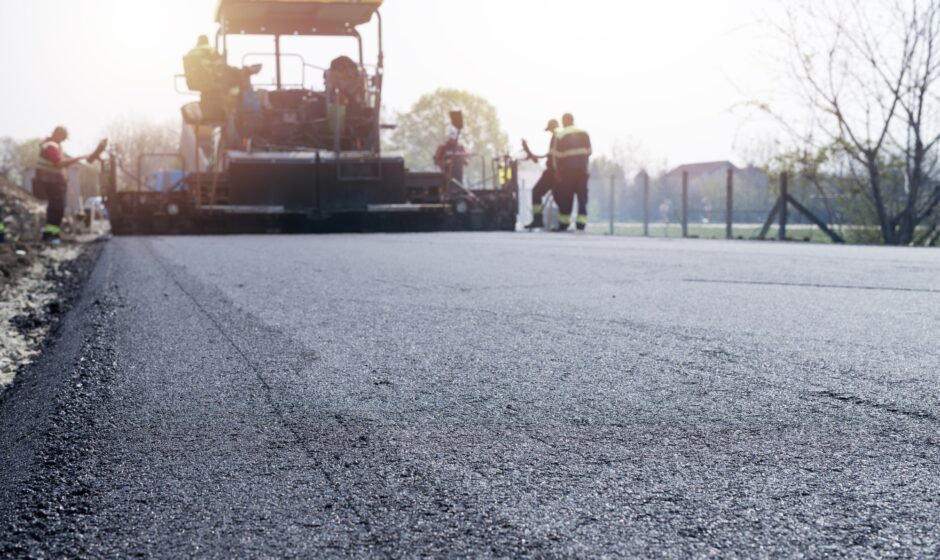Asphalt paving is one of the most popular and cost-effective solutions for residential driveways, commercial parking lots, and private roads. While it offers long-term durability, the total cost of an asphalt paving project can vary significantly based on several factors. Whether you’re planning a new installation or repairing an existing surface, understanding these factors can help you budget effectively and make informed decisions.
At Bama Georgia Paving, we specialize in delivering high-quality asphalt paving solutions tailored to your specific needs. In this blog, we’ll explore the key factors that impact the cost of asphalt paving projects, ensuring you know what to expect before getting started.
1. Size and Scope of the Project
The most obvious factor affecting the cost of any asphalt paving project is its size. Larger areas require more materials, labor, and equipment, which increases the overall cost.
- Square Footage: Asphalt paving costs are typically calculated per square foot. A driveway for a single-family home will cost far less than a large commercial parking lot or a private road.
- Project Complexity: Simple, rectangular surfaces are easier to pave and require less labor. Irregular shapes, curves, or surfaces with multiple sections can increase costs due to additional time and precision needed for installation.
The larger the project, the more cost-efficient the price per square foot becomes. Bulk material and labor costs are often more economical on bigger projects.
2. Condition of the Existing Surface
If you’re installing asphalt over an existing surface, the condition of that surface can significantly affect the cost.
- Surface Preparation: A deteriorated surface will require more preparation before new asphalt can be applied. Tasks like grading, leveling, or removing existing materials add to the overall cost.
- Full Replacement vs. Overlay: If the existing asphalt is still structurally sound, a thin overlay may be sufficient. However, a full replacement—which involves removing the old asphalt and starting from scratch—will cost more.
- Repairs and Base Work: A weak or damaged base layer must be addressed before new asphalt is installed. Without a solid foundation, the asphalt surface will crack or sink over time, leading to additional repair costs later.
The better the condition of the existing surface, the lower the costs will be for preparation and repairs.
3. Type of Asphalt Material
Not all asphalt materials are the same, and the type of asphalt you choose will impact the cost of your paving project.
- Hot Mix Asphalt: The most common and durable option for asphalt paving, hot mix asphalt requires high temperatures during installation. It delivers long-lasting results but may cost more due to the energy and labor involved.
- Recycled Asphalt: Reclaimed asphalt is an affordable, eco-friendly alternative that reuses old materials. It’s cheaper than new asphalt but may not last as long.
- Cold Mix Asphalt: Used primarily for temporary repairs or small areas, cold mix asphalt is less expensive but not suitable for large-scale projects.
Discussing your options with your paving contractor can help you determine the right material based on your budget and project requirements.
4. Labor Costs
Labor is a significant factor in determining the cost of asphalt paving. The complexity of the project, surface preparation, and the amount of labor needed all play a role.
- Skilled Labor: Professional contractors with experience and specialized equipment may charge higher rates, but they ensure high-quality, long-lasting results.
- Project Duration: Longer, more complex projects require more labor hours, increasing the overall cost.
- Local Labor Rates: Labor costs vary depending on your region. Areas with higher demand for paving services may have slightly higher labor rates.
While hiring professionals might seem costly upfront, it often saves money in the long run by avoiding mistakes and ensuring the asphalt surface is durable and well-constructed.
5. Thickness of the Asphalt Layer
The thickness of the asphalt layer directly impacts the durability and longevity of the paved surface. Thicker asphalt requires more materials, increasing the overall cost.
- Residential Driveways: Typically require a layer of 2–3 inches of asphalt, which keeps costs lower.
- Commercial Parking Lots and Roads: Heavier traffic and larger loads demand thicker asphalt layers—often between 4–6 inches—to withstand wear and tear.
While a thicker layer increases the initial cost, it also enhances durability and reduces long-term repair and maintenance expenses.
6. Accessibility of the Project Site
The location and accessibility of your project site can affect the cost of asphalt paving.
- Site Location: Remote or hard-to-reach areas may increase transportation and equipment mobilization costs.
- Terrain and Grading: If the site is uneven, hilly, or requires significant grading and leveling, additional labor and equipment will be needed to prepare the area.
- Obstacles: Existing structures, landscaping, or utilities that interfere with the paving process can increase costs due to extra work needed to maneuver around them.
Easily accessible, flat sites are generally cheaper to pave, while complex terrains add to the total cost.
7. Weather and Timing
The timing of your asphalt paving project can impact its cost. Asphalt paving is highly dependent on temperature and weather conditions, which can affect installation and material performance.
- Peak Season: Asphalt paving contractors are busiest during late spring and summer, when weather conditions are ideal. High demand during these months may lead to slightly higher prices.
- Off-Peak Season: Scheduling your project during fall or early spring may result in lower rates, as contractors may offer discounts during slower periods.
- Weather Delays: Rain, extreme heat, or cold temperatures can delay projects, leading to additional costs.
Scheduling your asphalt paving project during favorable weather conditions ensures smooth installation and reduces unexpected expenses.
8. Maintenance and Long-Term Costs
While the initial cost of asphalt paving is important, homeowners and business owners should also consider ongoing maintenance costs.
- Sealcoating: Regular sealcoating helps protect the asphalt surface from water, UV rays, and chemicals, extending its lifespan.
- Crack Sealing: Addressing small cracks early prevents them from worsening and becoming more expensive to repair.
- Resurfacing: Over time, the top layer of asphalt may need resurfacing to restore its appearance and functionality.
Investing in routine maintenance can save you money in the long run by avoiding costly repairs or full replacements.
Conclusion
The cost of an asphalt paving project depends on a variety of factors, including the size of the project, material choice, site conditions, and labor requirements. By understanding these factors and working with a trusted professional like Bama Georgia Paving, you can plan and budget effectively for your project.
Whether you need a new driveway, parking lot, or road, our team is dedicated to providing high-quality asphalt paving services that fit your needs and budget. We’ll guide you through the process, from material selection to installation, ensuring a smooth and cost-effective experience.
To get a customized quote and learn more about how we can help with your asphalt paving project, contact Bama Georgia Paving today. Let us help you create a durable, long-lasting surface that adds value to your property.



